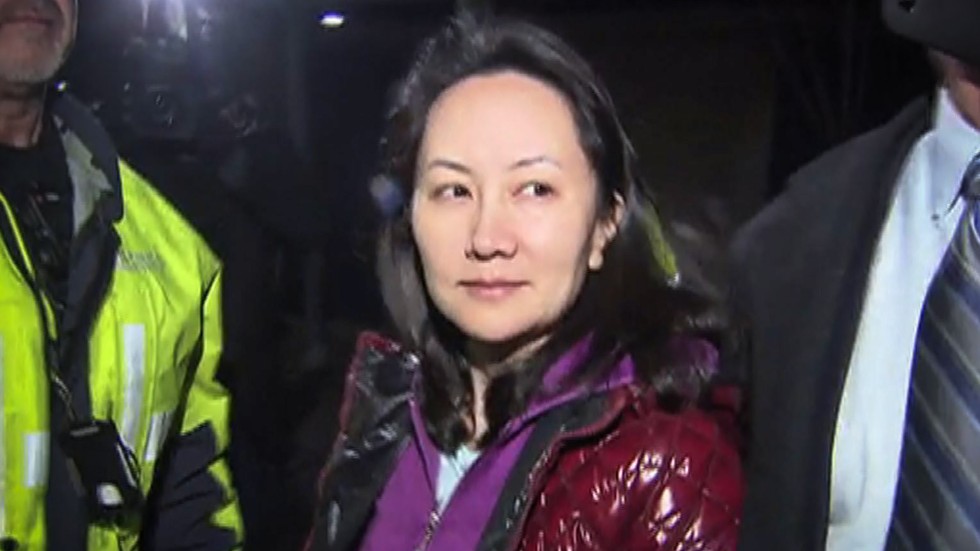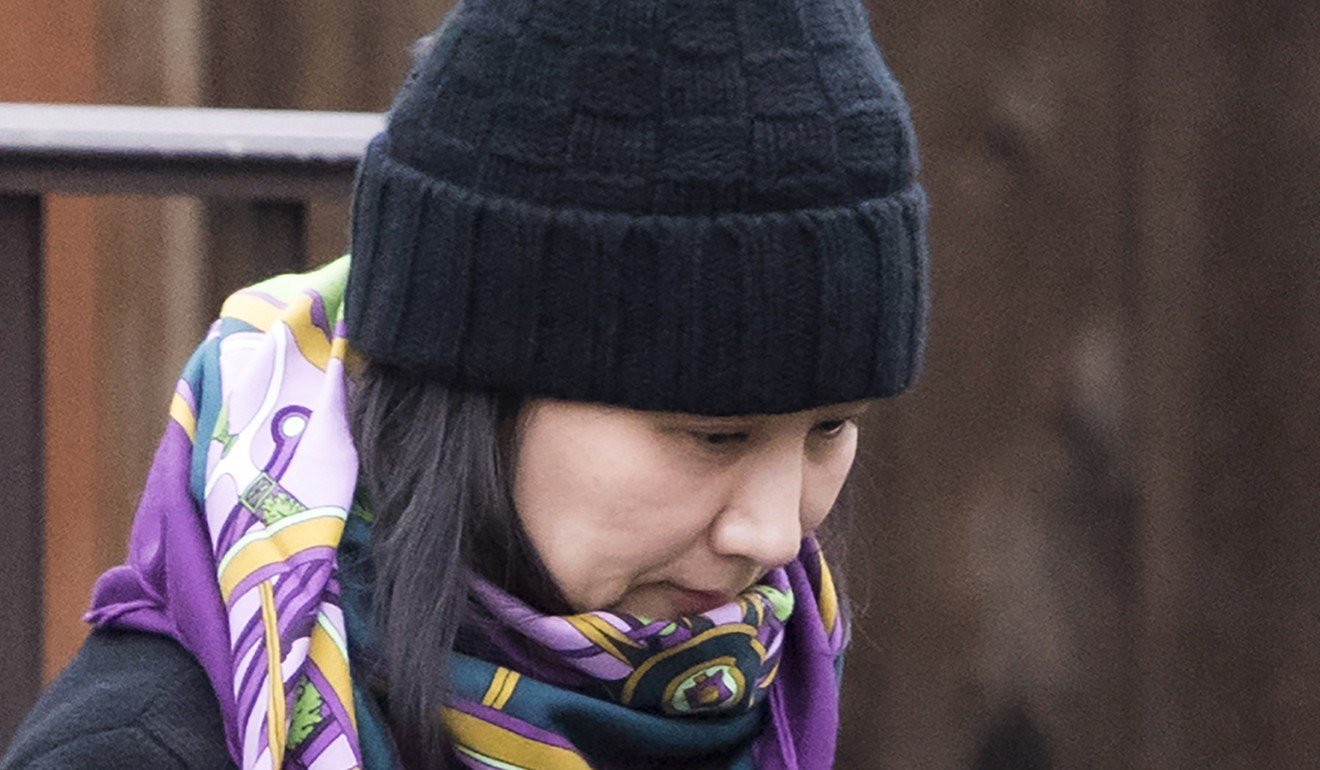
Huawei Technologies on Tuesday called for a quick resolution of the case involving its chief financial officer Sabrina Meng Wanzhou in Canada. Soon after, the US confirmed that it was still seeking her extradition.
Huawei chairman Liang Hua made the comments to reporters on the sidelines of the World Economic Forum in Davos, Switzerland.
“We are following this issue closely but haven’t had direct contact with the authorities,” Liang said. “We will call for a quick conclusion for Ms Meng so that Ms Meng can have her personal freedom.”
Liang was appointed acting chief financial officer of Huawei last month after Meng was arrested in Vancouver on December 1 over alleged violations of US sanctions against Iran. She was later released on bail and is due back in court on February 6.
“We operate our business globally, and in every country we fully comply with local laws and regulations,” Liang said, adding that the company welcomed requests to see the tech giant’s product development business as well as other units.

Canadian officials have stressed throughout that Meng’s case is a legal matter, not a political one, a message reiterated by the US Department of Justice on Tuesday.
“We will continue to pursue the extradition of defendant Ms. Meng Wanzhou, and will meet all deadlines set by the US/Canada Extradition Treaty,” Marc Raimondi, a spokesman for the Justice Department, said in a statement. “We greatly appreciate Canada’s continuing support in our mutual efforts to enforce the rule of law.”
Ren Zhengfei, founder of Huawei and Meng’s father, told reporters in the past week that he had confidence in the US and Canadian legal systems and even praised US President Donald Trump as a “great president”.
Speaking in Beijing earlier on Tuesday, foreign ministry spokeswoman Hua Chunying warned that China would take action against the US and Canada if Washington went ahead with a demand for Meng’s extradition.
Chinese ambassador accuses Canada of ‘white supremacy’ in Huawei case
“China will take action in response to measures taken by the US,” Hua said in a press briefing.
“Everyone has to be held responsible for their own actions. Both the US and Canada should be aware of the seriousness of the case and take steps to rectify the mistake.”
Hua said the case was an abuse of extradition conventions, and called on the US to withdraw the request.
Canada’s Globe and Mail reported on Tuesday that the US would file an extradition request on allegations of banking fraud related to violations of US sanctions against Iran.
The report said Canada’s ambassador to the US, David MacNaughton, had met senior White House and US State Department officials about the Meng case several times.
The ambassador was quoted as saying in the report that he had expressed Canada’s anger and resentment to Washington about the dispute that resulted from Meng’s arrest in December. Beijing has since detained two Canadians and imposed a death penalty on a third Canadian convicted of drug smuggling charges.
“We do not like that it is our citizens who are being punished,” he was quoted as saying. “[The Americans] are the ones seeking to have the full force of American law brought against [Meng] and yet we are the ones who are paying the price. Our citizens are.”
Meng Wanzhou arrest: what if China went after US executives?
MacNaughton did not say when the formal US extradition request would be made, but the deadline for filing is January 30.
MacNaughton said the Americans appreciated Ottawa’s statement that it would honour the extradition treaty and had told him they would continue to press Chinese authorities for the release of Michael Kovrig and Michael Spavor – the two Canadians detained by Beijing on grounds of “endangering national security”.
Meng, meanwhile, remains restricted largely to her Vancouver home after her release on bail.
Once the US submits its formal extradition request, officials from the Canadian Department of Justice will have 30 days to decide whether to go ahead.
Meng has the right to appeal against extradition and can apply for a judicial review of the minister’s decision.
A US Justice Department spokesman said, “We will comment through our filings”.
What happens next in the Huawei extradition case?
The Canadian Justice Department did not immediately respond to a request for comment.
Julian Ku, a professor at Hofstra University’s law school, said the US was expected to file the formal extradition request by next week’s deadline.
“There is no real benefit to moving more quickly at this point so I am not surprised they are taking their time to get their request right,” Ku said.
“If Meng is eventually extradited to the US, I do expect the Chinese government to continue to criticise the charges against her.
“I wonder, though, whether the Chinese government’s claims that Meng was arrested for ‘no reason’ will fall flat once more and more evidence is revealed against her in the court proceedings.”
Stephen Nagy, a Canadian politics and international studies professor at the International Christian University in Tokyo, said the legal process for Meng’s extradition could take six months or more to examine the allegations levelled against her.
“This will take some time,” he said. “This will be a challenge in terms of China-Canadian relations because China is demanding a change now, which means I think China will continue to put pressure on Canada, on Canadian citizens like Michael Kovrig and Michael Spavor, but also people of similar backgrounds.
“It’s likely if Ms Meng is found guilty in the Canadian context that she would be extradited to the United States.”
Shi Yinhong, an international relations professor at Renmin University in Beijing, said the Chinese government would continue to push for Meng’s release, regardless of whether the US formally submitted its extradition request or if the Canadian court decided to extradite her.
“At the moment, China has not taken direct measures against the US for Meng’s arrest, but if she is extradited to the US and even charged, they may take direct retaliatory measures or they may not,” he said.
“If they do, the intensity will be lower than the measures reportedly being taken against the Canadians.”
Additional reporting by Reuters, The Washington Post and Li Tao







